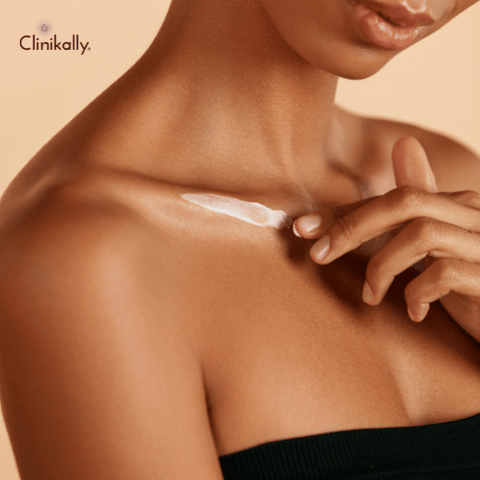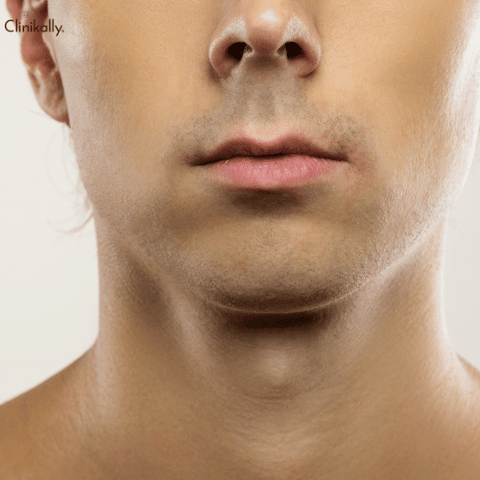Green tea isn't just a calming beverage, it's also a skincare hero. Bursting with antioxidants and boasting impressive anti-inflammatory properties, green tea extract is a vital component in many skincare products. But what are its real benefits? Are there any side effects? Let's dive into the world of green tea extract to explore its impact on our skin health, uses, and potential caveats.
What is green tea?
Originating in China, Green tea is one of the healthiest beverages in the world, with a rich history dating back more than 4,000 years. It's derived from the Camellia sinensis plant and is loaded with antioxidants, known as polyphenols. While it's appreciated globally as a refreshing beverage, its use extends far beyond being a thirst quencher. The extract from green tea leaves, rich in flavonoids like catechins and flavonols, carries many health benefits, especially for the skin.
Benefits of green tea for skin

The skin, the largest organ of our body, is continually exposed to external factors like sunlight, pollution, and toxins, which cause damage. Here are a few ways in which green tea extract can benefit the skin:
Antioxidant Properties: The antioxidants present in green tea, particularly Epigallocatechin Gallate (EGCG), help neutralise harmful free radicals, which can cause significant damage to the skin and accelerate the ageing process.
Anti-Inflammatory Effects: Green tea contains six different types of catechins, which have anti-inflammatory properties. They help reduce inflammation and redness, making green tea a soothing agent for conditions like psoriasis, rosacea, and dandruff.
Protection Against Sun Damage: Green tea has been found to help protect the skin from the damaging effects of the sun. While it's not a substitute for sunscreen, the polyphenols in green tea can help mitigate damage caused by harmful ultraviolet (UV) rays.
Does green tea lighten skin?
Green tea extract can indeed have a brightening effect on the skin. This is primarily due to its high vitamin C and E content, which are known to rejuvenate the skin cells, help in cell regeneration, and lighten dark spots. Additionally, its antioxidant and anti-inflammatory properties can reduce puffiness and under-eye circles, giving the skin a more even tone. However, while green tea extract may improve the skin's overall appearance, it's not a miracle cure for drastically altering skin colour or removing deep pigmentation.
Green tea botanical extract uses in skincare
Due to its numerous benefits, green tea extract is a popular ingredient in various skincare products. Here's a brief look at how it's used in different categories:
-
Facial Cleansers: Green tea extract's anti-inflammatory properties make it an excellent ingredient in facial cleansers. It helps reduce redness and inflammation while cleaning the pores.
-
Toners: As a toner, green tea extract can help minimise pores, maintain skin's pH balance, and prevent premature ageing.
-
Moisturisers: The antioxidant properties of green tea make it an excellent addition to moisturisers. It helps to lock in hydration while protecting skin from environmental damage.
-
Sunscreens: Some sunscreen products incorporate green tea extract to give an added layer of protection against harmful UV rays.
-
Eye Creams: Thanks to its anti-inflammatory benefits, green tea extract is often found in eye creams to reduce puffiness and lighten dark circles.
Potential side effects of green tea

While green tea and its extract are generally safe for most people, it can cause some side effects, particularly when consumed in large amounts:
Skin Irritation: Some people might experience skin irritation when applying products containing green tea extract, especially those with sensitive skin.
Caffeine Sensitivity: Green tea contains caffeine, which can cause restlessness, anxiety, insomnia, or upset stomach in some individuals.
Iron Absorption: Consuming large amounts of green tea can interfere with the body's ability to absorb iron.
Pregnancy Concerns: Pregnant and breastfeeding women should consult their healthcare provider before consuming large amounts of green tea or using products containing green tea extract, due to its caffeine content.
Always perform a patch test when trying a new skincare product with green tea extract, and consult your dermatologist if you experience any adverse reactions.
Bottom Line
Green tea extract holds numerous benefits for the skin due to its rich antioxidant and anti-inflammatory properties. It can help protect the skin from sun damage, lighten skin tone, and reduce inflammation. However, like any other ingredient, it's crucial to use it responsibly, keeping in mind any potential side effects. For a skincare routine that includes green tea extract, remember to perform a patch test and consult with a dermatologist if any issues arise. As with all skincare products, consistency is key to achieving the best results.

































1 comment
Ashish Jawa
Informative breakdown! Green tea extract’s antioxidant and anti-inflammatory prowess make it a skincare gem. Understanding its benefits and potential side effects is crucial for crafting an effective skincare routine. Kudos for shedding light on its versatility and importance in skincare products. Looking forward to more insightful content!
Informative breakdown! Green tea extract’s antioxidant and anti-inflammatory prowess make it a skincare gem. Understanding its benefits and potential side effects is crucial for crafting an effective skincare routine. Kudos for shedding light on its versatility and importance in skincare products. Looking forward to more insightful content!